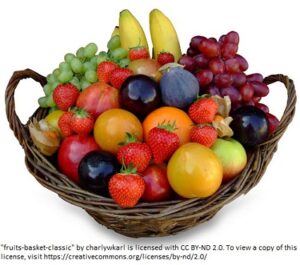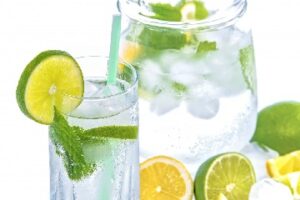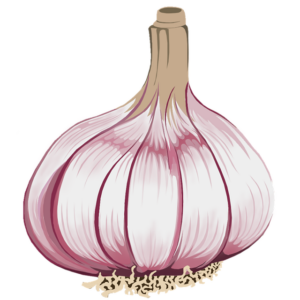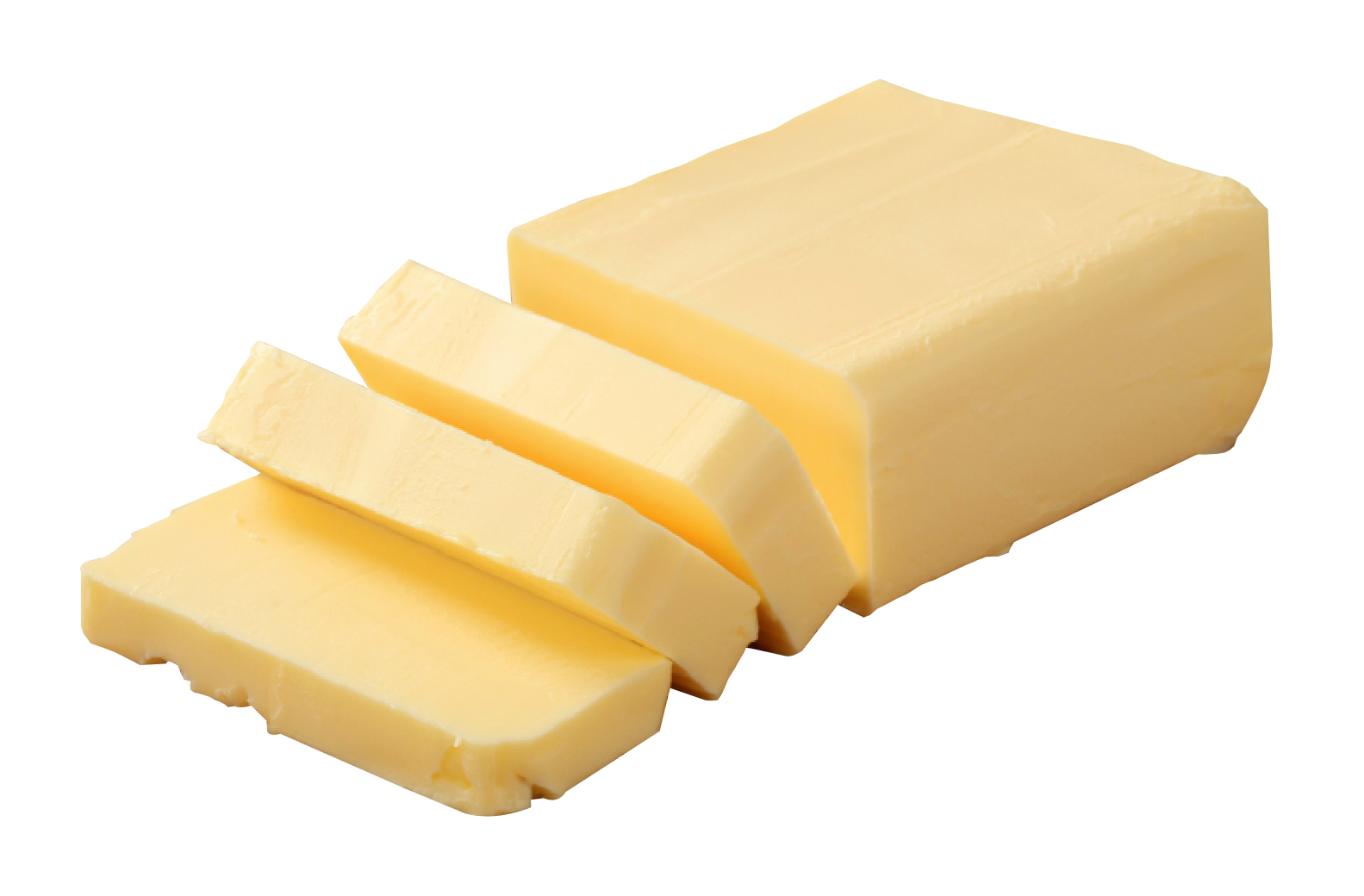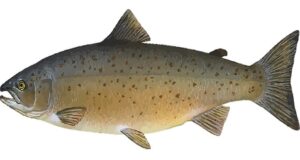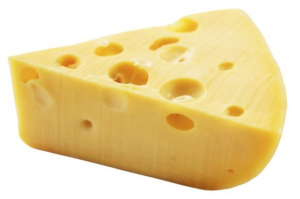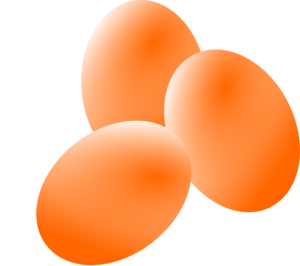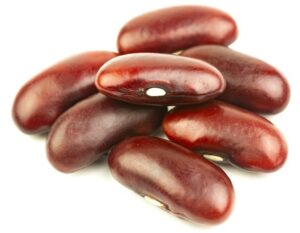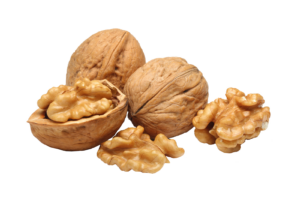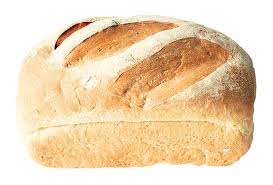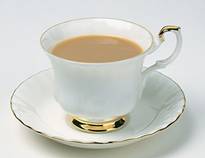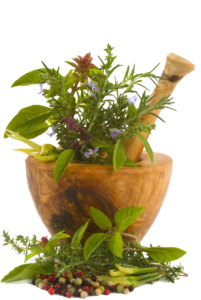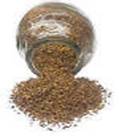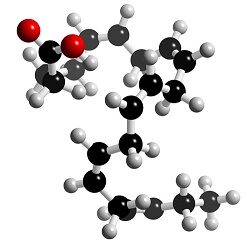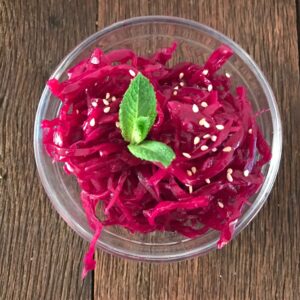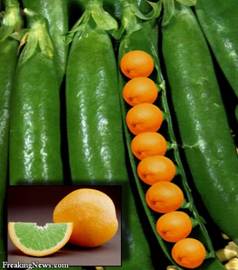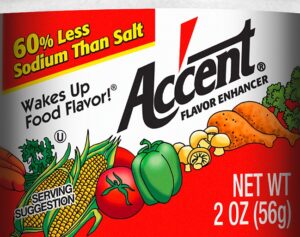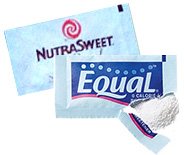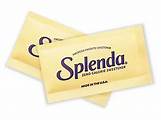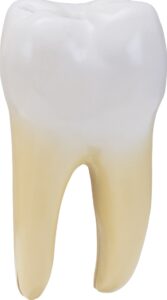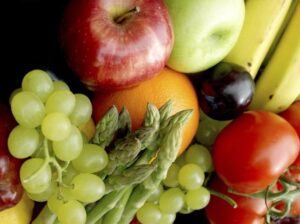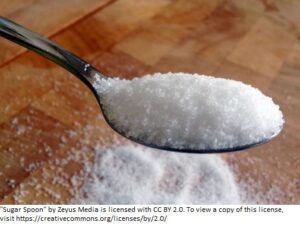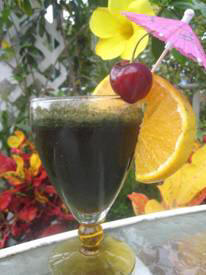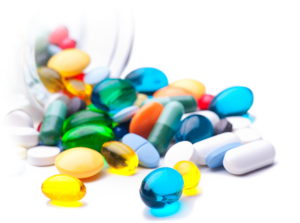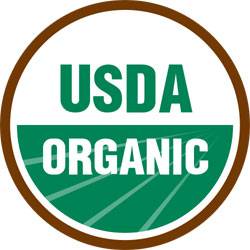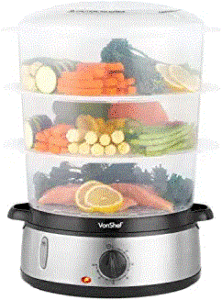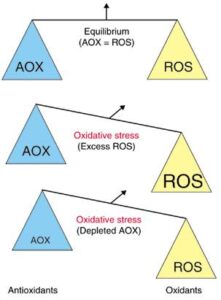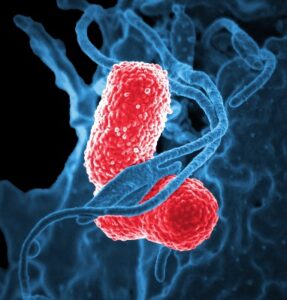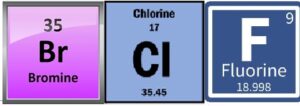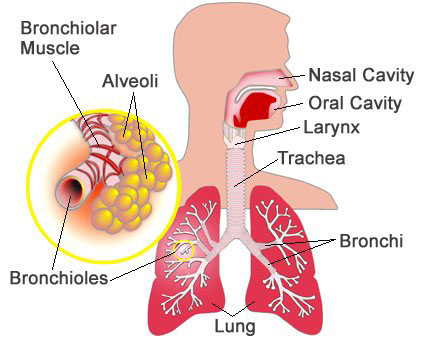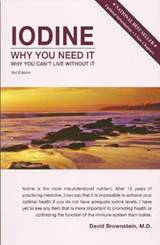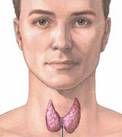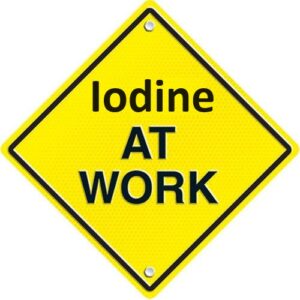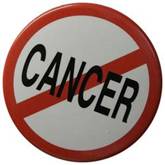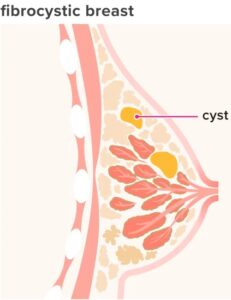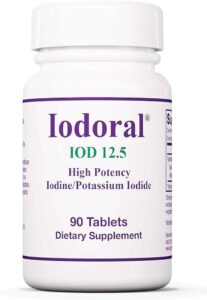
Support nutrients required for thyroid hormones / iodine supplementation
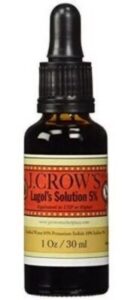
Iodine
~ ¼ of thyroid iodine is in T4 (itself nearly 65% iodine) and T3, the other ¾ is in the molecules which are precursors of T3 and T4
Iodine against thyroid disorders
The thyroid gland is the most efficient organ of the human body – capable of concentrating peripheral levels of 10-8M inorganic iodide 100 times to reach 10-6M iodide concentration required for the synthesis of thyroid hormones. Eskin B et al, “Different tissue responses for iodine and iodide in rat thyroid and mammary glands.” Biological Trace Element Research, 1995
The thyroid prefers to concentrate iodIDE, the mammary glands prefer iodINE
Before supplementing iodine:
- Magnesium, vitamin C and selenium are commonly deficient – Dr. David Brownstein says it is best to correct magnesium and Vitamin C before beginning iodine supplementation.
- If an acidic condition is present, you should first correct the pH imbalance – by eating whole foods and eliminating refined foods. Iodine itself is also an alkalinizing agent for the body.
Supporting trace minerals
Selenium
How much selenium do we need?
- The average daily intake of Se in U.S. is 60-150ug. Schroeder HA, Frost DV, Balassa JJ. 1970. Essential trace metals in man: Selenium. J Chronic Dis 23:227-243
- Those with thyroid problems, a high mercury intake/ exposure, or immuno-compromised should ensure a daily intake of 200 – 400 mcg selenium / day from food or supplementation (E.g. organic / bioavailable seleno-methionine or selenium yeast). Experts generally agree that one should start supplementation at a 200 mcg dose, increasing dose up to 400 mcg if symptoms have not not resolved over a few week
ATTENTION: If you increase your selenium intake you must also CONCURRENTLY supplement iodine (and vice versa) – With an iodine deficiency, any attempts to increase selenium intake will magnify any iodine deficiency causing it to become worse. The reverse is also the case.
Foods with high selenium content. Found in brazil nuts (1 nut fresh from shell = ~100 mcg), wheat germ, seafood /shellfish, beef, turkey, chicken, beef liver and kidney, eggs, spaghetti noodles, sunflower/sesame seeds, mushrooms, and kelp.
Selenium is needed for both thyroid hormone (TH) production and as an antioxidant support nutrient to protect against damage to thyroid tissue and enzymes by reactive oxygen species (ROS) produced during TH production
Selenium is more concentrated in the thyroid gland than in any other human body organ
- Iodothyronine deiodinase enzymes contain selenium (as selenocysteine) and are required to catalyze the conversion of thyoid hormone T4 to its active form T3. Since selenium is a component of deiodinase, low selenium levels means low T3 production. T3 works inside cells to set the pace of metabolism. (Deiodinase enzymes also control the removal of an iodine molecule to convert from T3 to T2 and T2 to T1).
Selenoproteins(Se-dependent iodothyronine deiodinase enzymes . Selenoprotein-containing iodothyronine deiodinase enzymes act in various ways to change thyroxine (T4) into triiodothyronine (T3, active thyroid hormone) and reverseT3 (rT3, which inactivates T3). The three main selenoprotein-containing iodothyronine deiodinase enzymes that activate and inactivate thyroid hormone are known as D1, D2, and D3.
When the body starts to run low on selenium the activation of thyroid hormone by D1 may drop by 90% and ROS activity is greatly increased – the body compensates by turning on the backup system, using the D2 enzyme to maintain active thyroid hormone. The problem with this backup system running for any great length of time is that is causes significantly increased production of ROS. Even worse, the lack of selenium has already handicapped glutathione (GSH), the primary antioxidant that protects the thyroid gland and liver. Thus, selenium deficiency forces the body into a very uncomfortable metabolic coping strategy that eventually leads to slower metabolism, increased oxidative stress, and wear and tear on the thyroid gland and liver |
Selenium is needed as an antioxidant support nutrient to protect against damage to thyroid tissue and enzymes by reactive oxygen species (ROS) produced during TH production. Selenium is a component of vital thyroid protective antioxidant glutathione peroxidase (GPX) enzymes. Intracellular and secreted Se-dependent antioxidant glutathione peroxidase (GPX) protect thyroid gland from reactive oxidation species. In particular, GPX reduces potentially damaging H2O2 to water. The enzyme Thyroid Peroxidase (TPO) prepares iodine for attachment to tyrosine residues to form thyroid hormone, a process resulting in excessive numbers of oxidants such as hydrogen peroxide and lipid peroxides. Glutathione (GSH) enzymes are proven to protect the thyroid gland (reduce lipid hydroperoxides to their corresponding alcohols and free hydrogen peroxide to water) during thyroid hormone formation (they also help protect the inside of cells, the GI tract and the reproductive system, and are active in the fluids between cells).
By quenching / controlling these potentially harmful oxidants, selenium-dependent GSH enzymes avert thyroid stress and inflammation, which would otherwise retard thyroid hormone production
Selenium is perfect antidote for increasingly present mercury exposure. Mercury is now commonly present in the atmosphere, seafood, dental amalgams, mercury-laden vaccines, but Se’s affinity for mercury also strips the body of its precious selenium stores.
Selenium – Antioxidant GPX enzyme component
Manganese (Mn)
Adequate manganese intake (2.5 – 5mg /day)
Manganese superoxide dismutase (MnSOD) enzyme presence increases with thyroid hormone activity in the liver to protect against resulting extra reactive oxidant species from an increased metabolic rate. A lack of manganese is now clearly associated with reduced thyroid hormone function in the body.
Manganese is a vital component of the antioxidant enzyme manganese-dependent superoxide dismutase (MnSOD) – key to the mitichondrial antioxidant defense system, and so enables these energy “factories” to produce energy / heat efficiently. In particular, since most T4 to T3 conversion occurs on cell membranes in the liver, where MnSOD is a primary antioxidant protector, then oxidant-stressed liver cell membranes would detrimentally affect the activation of thyroid hormone.
Manganese – Antioxidant enzyme component in energy production
Zinc (Zn)
Zinc (5 – 15 mgs (max) / day) improves thyroid function; assists in the conversion of T4 to active T3 form of thyroid hormone. You can use liquid zinc to test for zinc deficiency – if you can taste the zinc then you are not deficient. If you taste nothing then you need to supplement.
Zinc supplement should be combined with 2 mg Copper – since they are antagonists and increasing zinc levels will lower copper levels.
An Italian study showed 50% of hypothyroid patients had improved thyroid function after zinc supplementation.
Antioxidants
The normal process of making and activating thyroid hormone is highly oxidative – resulting in a lot of reactive oxidant species (ROS) – which can only be neutralized by antioxidants. If antioxidant presence in the body is depleted, thyroid function must slow down to avoid excessive, unconfronted oxidation products. A struggling thyroid demonstrates a significant increase in ROS and consequential inflammatory signals (e.g. TNF-αand IL-6) which can result in damage to thyroid cells.
- Vitamin A (25,000 IU/day)- The thyroid cannot produce thyroxine (T4) without sufficient vitamin A, which helps the thyroid absorb iodine; Individuals with low thyroid function (hypothyroidism) have a reduced ability to convert beta-carotene into vitamin A.
- Vitamin B3 (Niacin). (Inositol Hexanicotinate 500 mg 2xdaily) – B3 is needed to increase ATP functionality to help with energy and organification of iodine (thyroid’s incorporation of iodine into thyroglobulin to produce thyroid hormones).
- Vitamin B9 (folate). Low folic acid can lead to an under-active thyroid gland
- Vitamin E assists in the absorption of iodine;
When supplementing with iodine:
- Vitamin C (1000 – 2000 mg/day) and sufficient protein – supports the protein sodium / iodide pumps to get iodine into cells. An influx of iodine pushes out bromine and fluorine. Sufficient protein (a component of sodium iodide symporter) is then needed to transport the newly available iodine. However, do not take within 2 hours of taking an iodine supplement (or it will neutralize the Iodine);
Unrefined Celtic or Himalayan sea salt (½ tsp / day). Adrenal support; binds bromide and aids removal from body; supports sodium iodine symporters (NIS) (NIS mediated uptake of iodide into thyroid’s follicular cellls is 1st step in synthesis of thyroid hormones)
Other nutrients that should be in your diet
Magnesium (400-600mg/day) – needed to minimize detoxification reactions.
Magnesium – The Missing Miracle Mineral
Sufficient protein – in particular the amino acid tyrosine (known as the anti-depressant amino acid) – a co-ingredient with iodine to make thyroid hormones.
- Can be obtained directly in high protein foods – E.g. chicken, turkey, fish, peanuts, almonds, avocadoes, milk, cheese, yogurt, cottage cheese, lima beans, pumpkin seeds, sesame seeds, soy products, also bananas;
- Can be synthesized in body from the essential amino acid phenylalanine – also found in meat and dairy in highest amounts, and in lower amounts in oats and wheatgerm. To make use of phenylalanine, the body requires vitamins B3, B6, and C, also copper and iron.
Sufficient essential fatty acids – Omega-3 (flax seed / krill oil) and Omega-6; iodine is carried from the intestines into the blood via EFAs. Also – the liver needs to produce bile (eat beets) to metabolize fats.
Krill Oil (1000mg/day)



